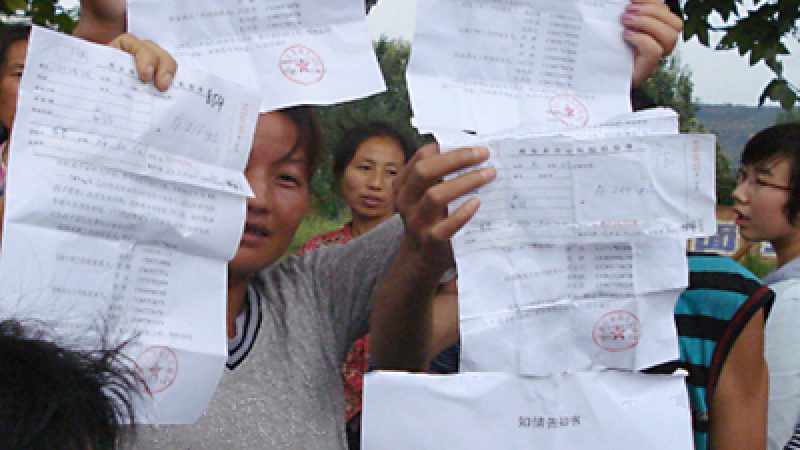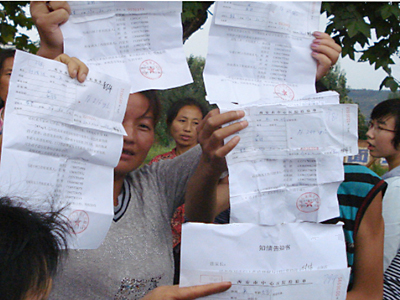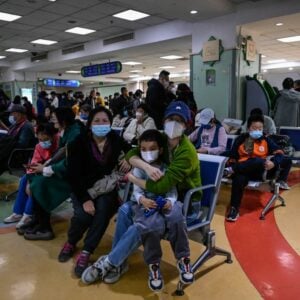
1,300 Hunan Children Sick with Lead Poisoning

A manganese smelter in Hunan Province has released lead contamination that’s believed to have made over 1,300 children seriously ill. Parents are outraged, and unsatisfied with local authorities’ attempts at a solution. Images have yet to emerge from the scene, and those you’re seeing now are from official state media footage of the similar lead poisoning case that happened just days ago in Shaanxi Province.
The kids became sick because their schools were located near the Wugang Manganese Smelting Plant in the town of Wenping. Parents began to suspect that heavy chemical emissions from the factory were to blame for symptoms like memory loss, high blood pressure and signs of brain damage.
With parents protesting, authorities in Wenping finally decided to act—investigating how much pollution this factory was spreading and how many children have been affected.
So far, state-run media say there are 1,354 cases of children with excessive levels of lead in their blood. That’s about 70 percent of those who’ve been tested.
Officials announced Thursday that the manganese plant had been shut down and two officials arrested—but also that the plant had been operating for over a year without approval from the local environmental protection bureau. No investigation was launched until the issue of lead poisoning was already making national headlines because of the recent similar incident in Shaanxi Province.
Though the plant has been shut down now, dangerous lead residue remains throughout the area. A correspondent for Al Jazeera reports that so far local officials have offered to relocate residents within about two years. But that’s still a long enough wait for more people to be exposed to lead. And the new housing would still be only 3 miles away—possibly still within the polluted zone.
 (NTDTV)
(NTDTV)


![[Live] FDP-Wahlkampfauftakt mit Parteichef Lindner in Potsdam](https://images-de.epochtimes.de/uploads/2025/01/Thumb-FDP-Live-Potsdam-400x225.jpg)
























vielen Dank, dass Sie unseren Kommentar-Bereich nutzen.
Bitte verzichten Sie auf Unterstellungen, Schimpfworte, aggressive Formulierungen und Werbe-Links. Solche Kommentare werden wir nicht veröffentlichen. Dies umfasst ebenso abschweifende Kommentare, die keinen konkreten Bezug zum jeweiligen Artikel haben. Viele Kommentare waren bisher schon anregend und auf die Themen bezogen. Wir bitten Sie um eine Qualität, die den Artikeln entspricht, so haben wir alle etwas davon.
Da wir die Verantwortung für jeden veröffentlichten Kommentar tragen, geben wir Kommentare erst nach einer Prüfung frei. Je nach Aufkommen kann es deswegen zu zeitlichen Verzögerungen kommen.
Ihre Epoch Times - Redaktion